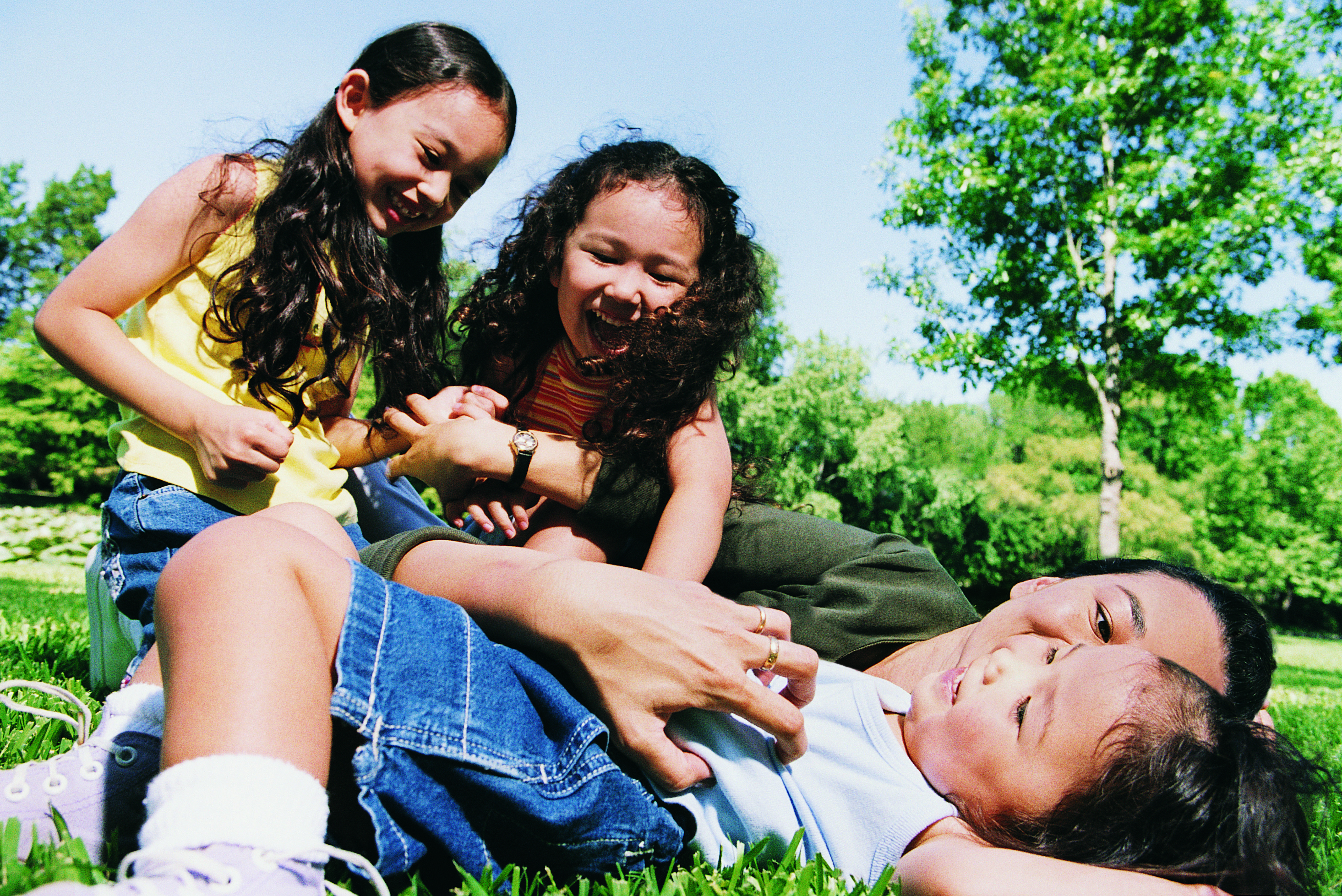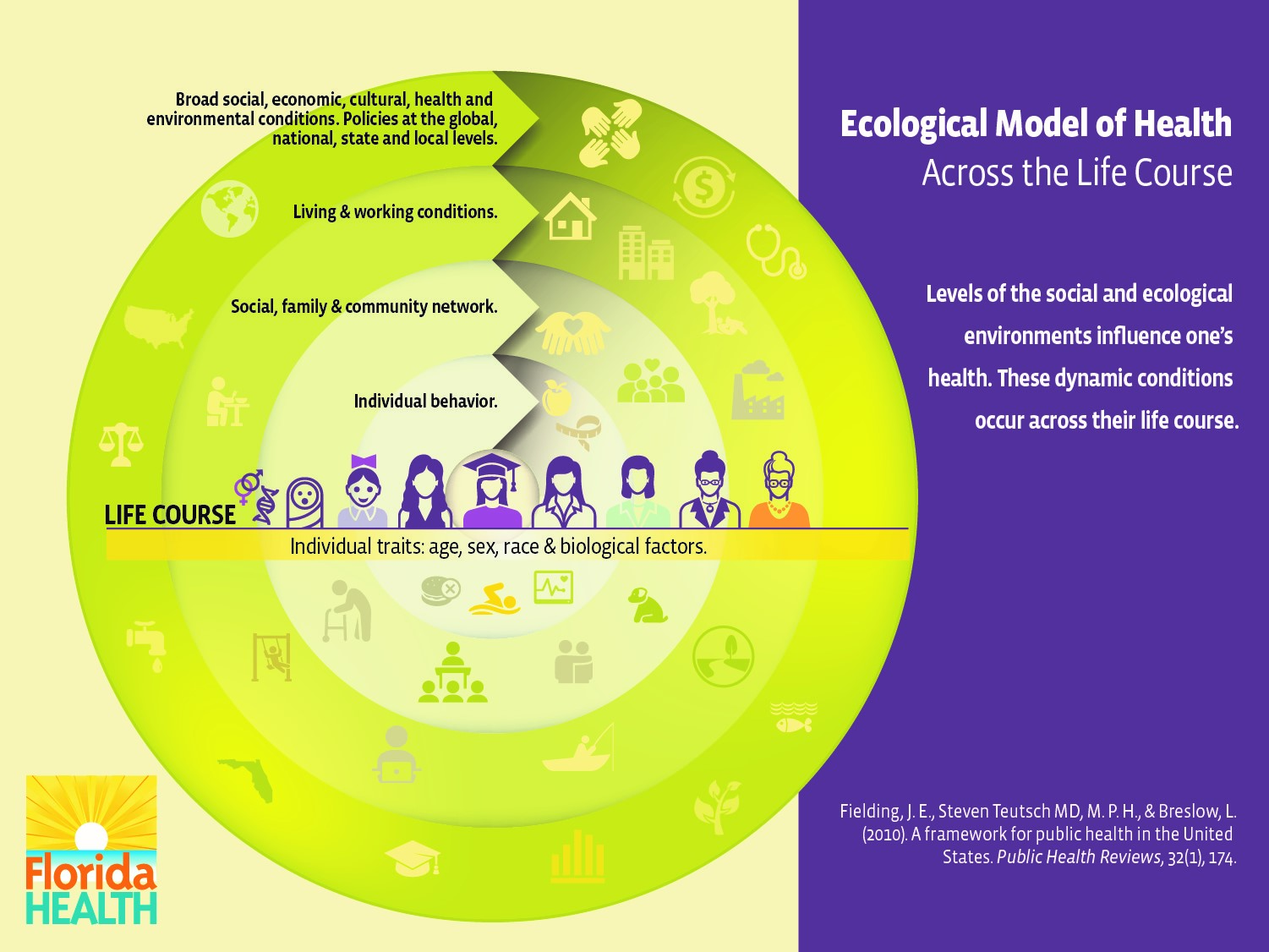It's a New Day in Public Health.
The Florida Department of Health works to protect, promote, and improve the health of all people in Florida through integrated state, county, and community efforts.
The Life Course Theory
Contact the Maternal and Child Health Section
- 850-245-4465
-
Fax
850-245-4047 -
Mailing Address
Maternal and Child Health Section
4052 Bald Cypress Way, Bin A13
Tallahassee, FL 32399-1721
The Life Course Theory suggests that each life stage influences the next, and together the social, economic and physical environments in which we live have a profound influence on our health and the health of our community.

The Life Course Theory looks at health as an integrated continuum where biological, behavioral, psychological, social and environmental factors interact to shape health outcomes across the course of a person’s life. The adoption of the Life Course Theory into public health practice requires movement away from isolated efforts and encourages broader thinking about the factors impacting health. Instead of concentrating on one health disease or condition at a time, the Life Course Theory looks to social, economic and environmental factors as underlying causes of persistent inequalities in health.1
Ecological Model of Health Across the Life Course
References:
1. U.S. Department of Health and Human Services, Health Resources and Services Administration, Maternal and Child Health Bureau. (2010). Rethinking MCH: The Life Course Model as an Organizing Framework. Retrieved from: http://www.hrsa.gov/ourstories/mchb75th/images/rethinkingmch.pdf




Connect with DOH